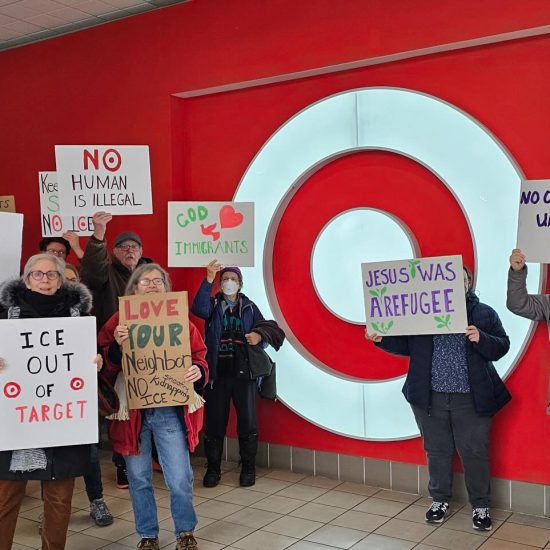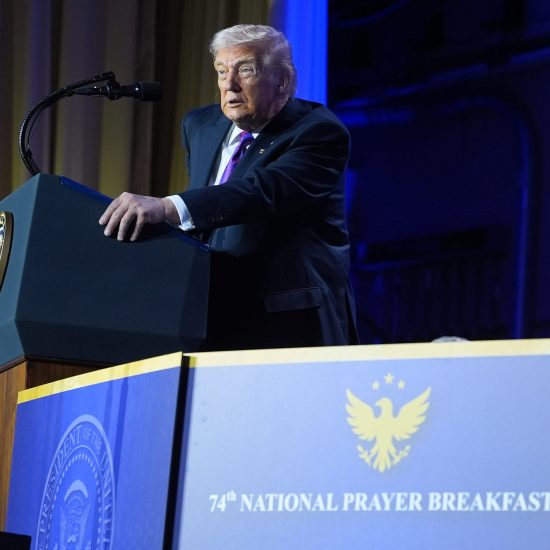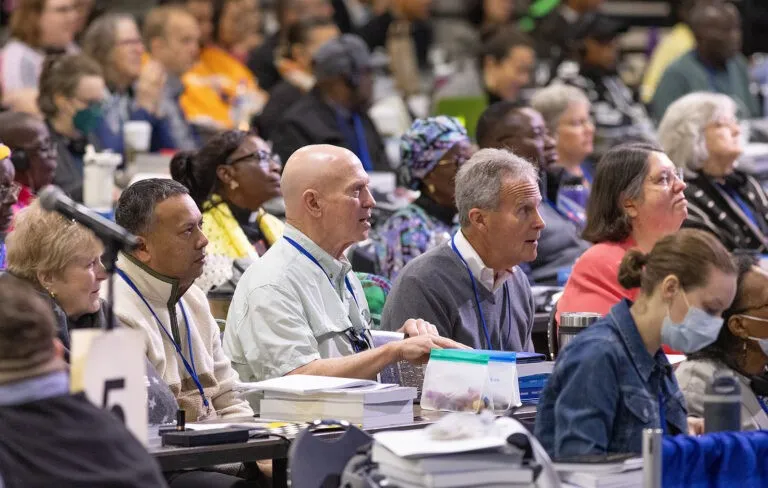
After messengers to the Southern Baptist Convention’s annual meeting this month passed a resolution critiquing in vitro fertilization, an advisor to the SBC’s Resolutions Committee said he hopes it will spark conversations in local Southern Baptist churches. While it could impact public policy debates among lawmakers — especially after the Alabama Supreme Court ruling declaring frozen embryos to be people and thus threatening IVF in the state — the resolution’s bigger impact could be in congregations.
“This resolution was intended for the messenger body to not only speak to these issues but also be used by Southern Baptist churches, to be used by counselors, to be used by pastors and ministry leaders as well as couples to highlight the ethical realities at stake,” explained Jason Thacker, a senior fellow at the SBC’s Ethics & Religious Liberty Commission. “This resolution, I think, is going to be a great aid to the churches of the Southern Baptist Convention.”
As Thacker noted, denominational statements and actions have the ability to raise an issue in churches, sparking fresh conversations and perhaps even bleeding into public discussions beyond the sanctuaries. That’s why it matters what denominations decide to say at their meetings.
This week, two mainline Protestant denominations with more progressive leanings than the evangelical SBC are holding meetings. And both the Episcopal Church and the Presbyterian Church (U.S.A.) gatherings include proposals to address Christian Nationalism. But the statements are significantly different in tone and focus, which could impact how this critical issue is addressed in local churches and other organizations within those denominations. Additionally, the Tennessee-Western Kentucky Annual Conference of the United Methodist Church last week passed a resolution on Christian Nationalism that went beyond what the national UMC leaders have said, which could shift considerations of the topic in important ways.
As more denominational groups address the issue of Christian Nationalism, this issue of A Public Witness looks at an Episcopal Church resolution, a PC(USA) recommendation, and a regional UMC resolution to see how some mainline Protestant groups are wrestling — or not — with their own complicity in spreading Christian Nationalism.
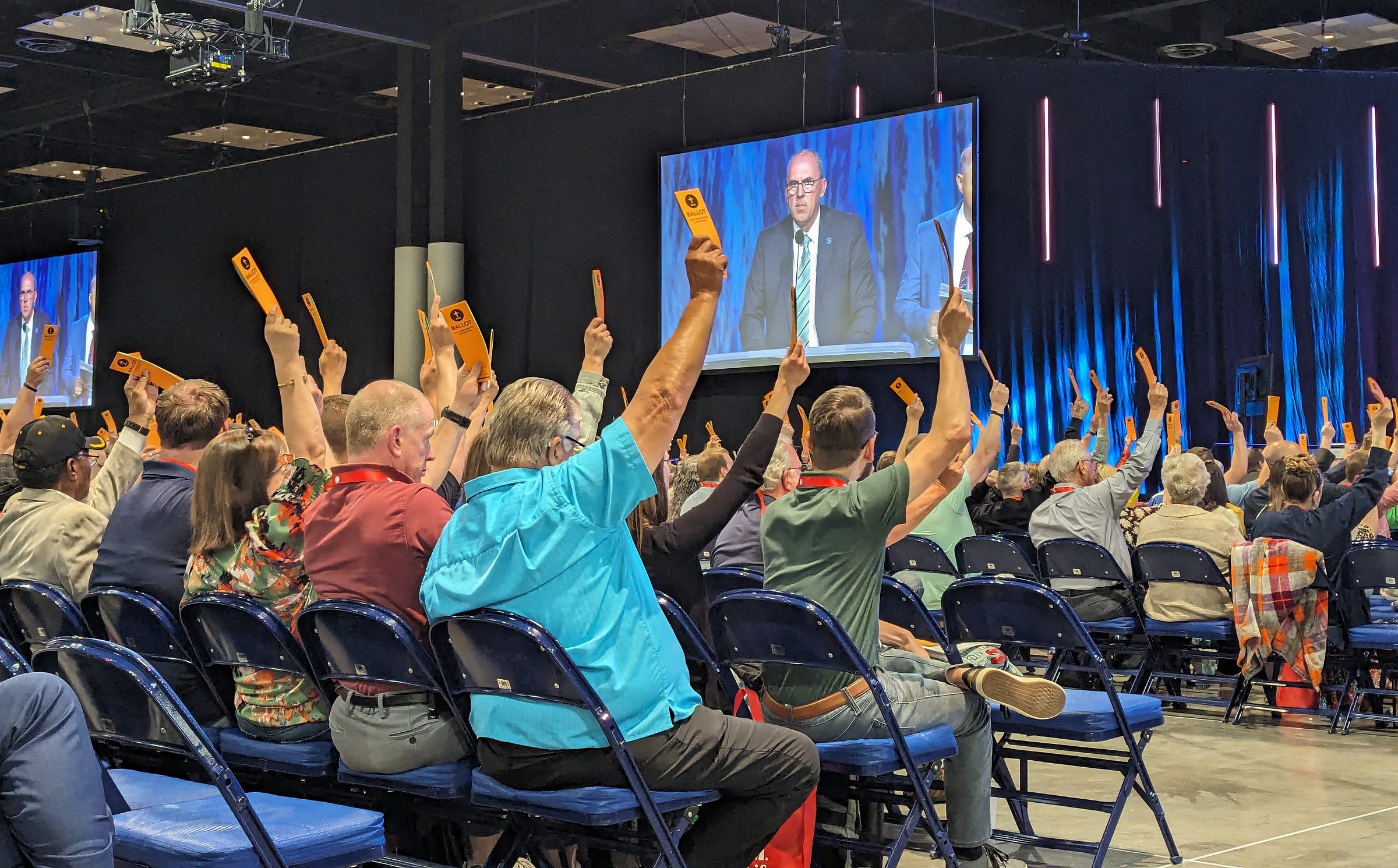
Messengers vote during the Southern Baptist Convention’s annual meeting in Indianapolis, Indiana, on June 11, 2024. (Brian Kaylor/Word&Way)
Resolved
In this summer season of denominational meetings, two national gatherings this week and a regional one last week show Christian leaders grappling with the threat of Christian Nationalism to the nation and our Christian witness. But not all statements are created equal.
Episcopal Church. With the triennial general convention of the Episcopal Church occurring this week in Louisville, Kentucky, the members of the denomination’s bicameral legislature — the House of Deputies and the House of Bishops — are considering various issues ranging from the election of a new presiding bishop to speaking out on a number of issues.
A resolution under consideration addresses how to “Combat Rising Religious Nationalism.” It passed the House of Deputies on Monday (June 24) and then was recommended by a House of Bishops committee for approval by the full body of bishops. The resolution doesn’t specifically name Christian Nationalism even though that is the dominant U.S. strain of religious nationalism.
The resolution acknowledges “the urgent, troubling, and deeply rooted issue of religious nationalism, the intersection of religious extremism and nationalist ideologies, both domestically and globally.” Lamenting “the negative impact” of religious nationalism and its promotion of violence, the resolution encourages “individuals, congregations, dioceses, and other communities within the church to educate themselves more thoroughly about this critical issue and its negative impact on marginalized groups.” And it urges “the Episcopal Church and its mission-related entities, in partnership with inter-religious, ecumenical, and Anglican Communion partners, to combat rising religious nationalism by reporting associated incidents of violence and intimidation to the public and to the appropriate authorities.”
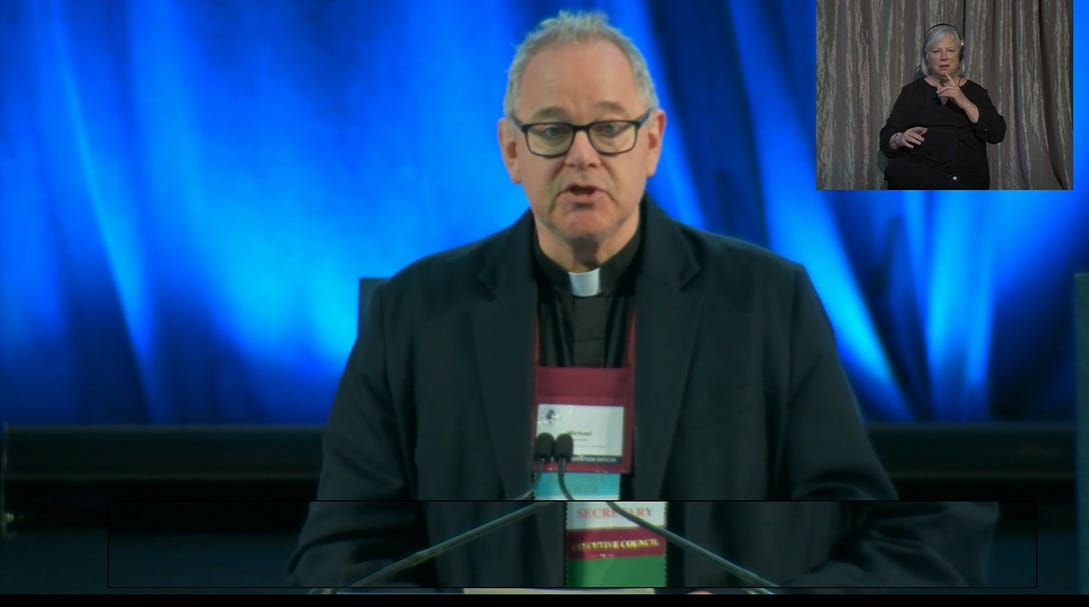
Screengrab as Rev. Michael Barlowe, secretary of the House of Deputies for the General Convention of the Episcopal Church, speaks during the opening session on June 23, 2024.
Presbyterian Church (U.S.A.). As the nation’s largest Presbyterian denomination gathers in Salt Lake City, Utah, this week for its biennial general assembly, commissioners will elect a new stated clerk and consider a number of constitutional and other structural decisions. One proposal, which is scheduled for discussion on Thursday, will be to launch a study of “White Christian Nationalism.”
The study recommendation from the Advisory Committee for Social Witness Policy would have that committee create a team to analyze Christian Nationalism and related issues of authoritarianism and Christian Zionism. In addition to better understanding the ideology, the team would work with the Presbyterian Mission Agency and Presbyterian Publishing Corporation to “develop materials — for worship, Sunday Schools, programmatic events — that equip individuals and congregations with resources to deconstruct practices, theologies, and patterns of [White Christian Nationalism] in the church and society at large.” It would also “confess the complicity of PC(USA) in the emergence and expansion of a U.S. civic religion, Christian in tone and content, that not only conflates church and state but also succumbs to idolatries of national and racial identities.”
Published justification to support the recommendation notes the importance of understanding Christian Nationalism in light of the Jan. 6, 2021, insurrection. But it also explains that this is not a new problem in American Christianity.
“The PC(USA) need confess a challenging reality: White Christian Nationalism is a movement that bears forth theological doctrines long cherished, preached, and uplifted across Protestant traditions,” the committee’s rationale reads.
UMC Tennessee-Western Kentucky Annual Conference. During a meeting last week in Murfreesboro, Tennessee, the Tennessee-Western Kentucky Annual Conference of the United Methodist Church dealt with leadership changes as Bishop Bill McAlilly retires. The delegates also passed a resolution on “Calling the Church to Oppose Christian Nationalism.”
The resolution referred to a recent statement on Christian Nationalism by the UMC’s General Board of Church and Society to define the ideology as “a political ideology that seeks to merge Christianity and a particular type of American identity, distorting both the Christian faith and the United States constitution often providing cover for white supremacy and racial subjugation.” The regional resolution also notes the “violent rhetoric and authoritarian approaches to civic life and public policy” found with Christian Nationalism, which has been “present in varying degrees throughout modern history” but “has taken on a more aggressive and overt form in contemporary public life.”
“Christian Nationalism appropriates the name of Jesus Christ and the language and imagery of Scripture to promote this ideology, in direct contradiction to the gospel Jesus preached, a liberating and loving gospel that the United Methodist Church embraces,” the resolution reads. “Christian Nationalism misrepresents our faith to our neighbors, thereby turning people away from the life-giving love of God by identifying Christianity with hate, social hierarchy, fear of the ‘other,’ and violence.”
The resolution also notes the ideology “denies the imago Dei in every human being” and “runs counter to the very heart of our Wesleyan identity by promoting division and stratification of the human family” in ways that undermine the unity found in baptism and the Lord’s table.
Thus, the delegates voted to declare the body “denounces Christian Nationalism in all its forms as a distortion of the Christian faith, and commits to opposing it wherever it appears.” They also committed to educating parishioners about the dangers of Christian Nationalism and to “take every possible opportunity to speak out and act urgently.” Part of this work, the resolution adds, involves considering their own churches and denomination.
“The Tennessee-Western Kentucky Conference of the United Methodist Church, in all its expressions, will continue to prayerfully discern, confess, and repent of our own complicity with Christian Nationalism,” the resolution reads.
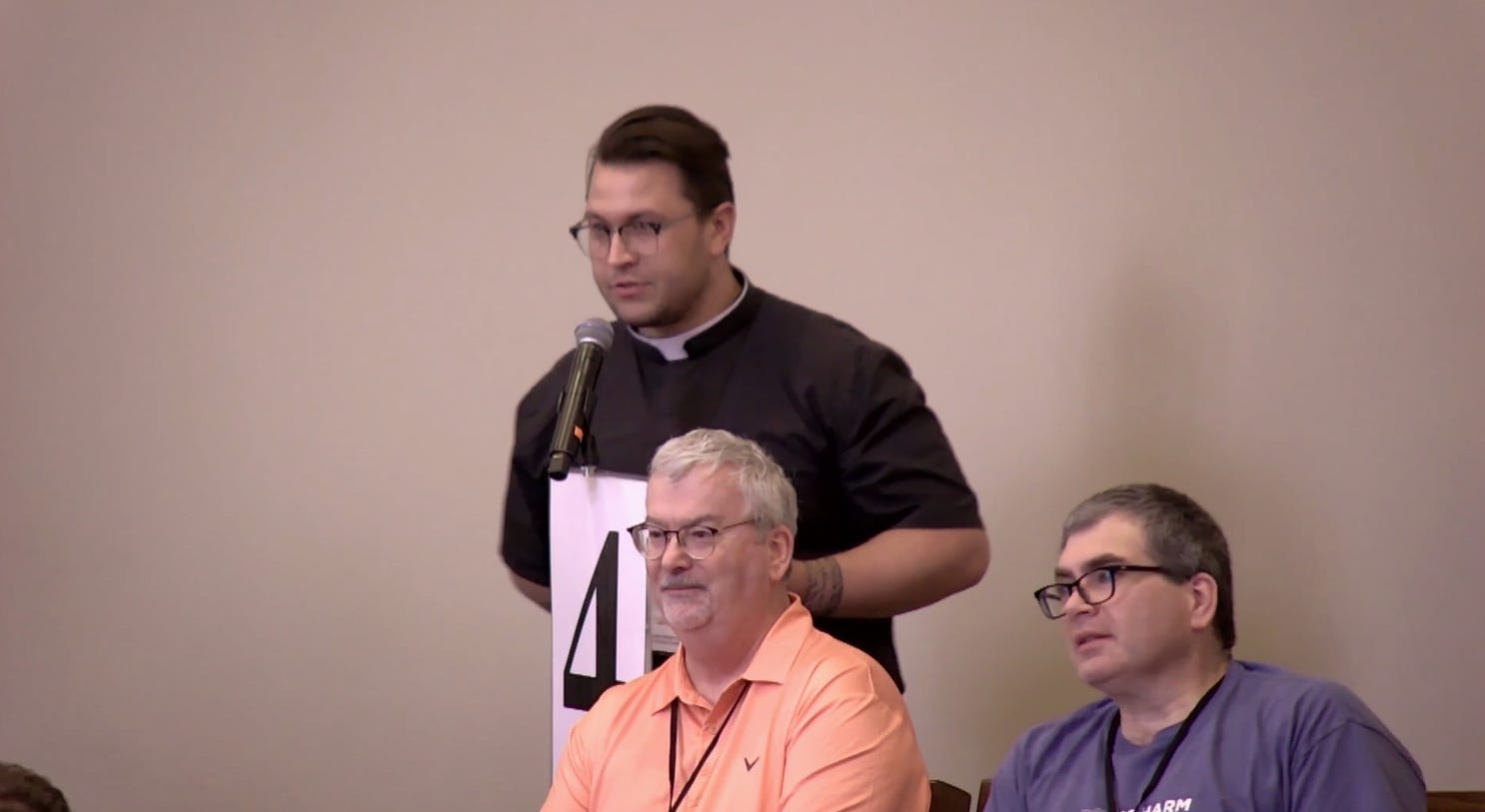
Screengrab as a delegate speaks in favor of the resolution on Christian Nationalism during the Tennessee-Western Kentucky Annual Conference of the United Methodist Church in Murfreesboro, Tennessee, on June 19, 2024.
Get cutting-edge analysis and commentary like this in your inbox every week by subscribing today!
An Alternative Witness
These three statements on Christian Nationalism add to others over the past year from mainline Protestant denominations, including a resolution passed last year by the Christian Church (Disciples of Christ), a document this year from the Evangelical Lutheran Church in America, and a statement by the UMC’s General Board of Church and Society. The DoC, ECLA, and UMC documents all outlined the dangers of Christian Nationalism, but only the DoC resolution acknowledged complicity in advancing Christian Nationalism — like in ways documented by Beau Underwood and me in Baptizing America: How Mainline Protestants Helped Build Christian Nationalism. While the DoC resolved to “continue to prayerfully discern, confess, and repent of our own complicity with Christian Nationalism,” the ECLA and UMC statements treated Christian Nationalism as a problem created by other Christians. After the earlier UMC statement, we wrote a Religion News Service column urging United Methodists to “address their complicity.”
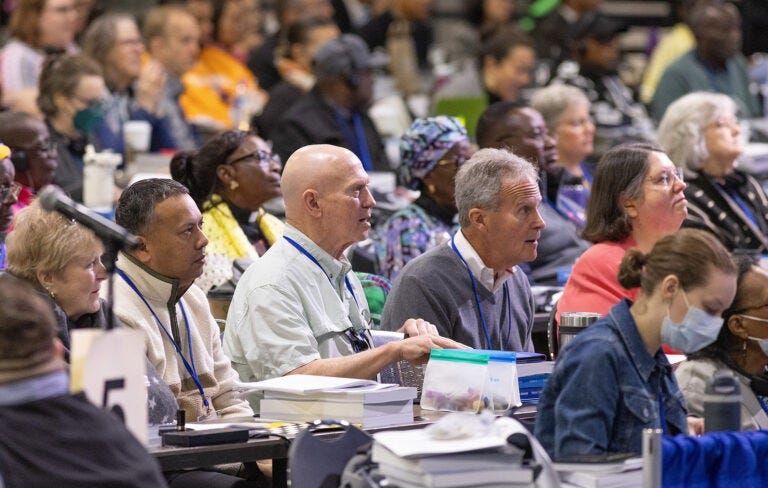
Delegates consider legislation at the 2024 United Methodist General Conference in Charlotte, North Carolina. (Mike DuBose/UM News via RNS)
The resolution this week from the Episcopal Church follows the general pattern of ignoring complicity with Christian Nationalism, especially as it doesn’t even focus on Christian Nationalism as a unique problem within the broader category of religious nationalism. Leaders of the Episcopal Church have in the past clearly condemned “White Christian Nationalism.” Outgoing Presiding Bishop Michael Curry has been a particularly outspoken critic of the ideology, including with his support of the “Christians Against Christian Nationalism” initiative. But this hasn’t included much self-reflection on ways Episcopalians have helped advance the ideology.
In contrast, United Methodists in Tennessee and Western Kentucky last week clearly challenged Christian Nationalism in public and also in their own churches and denomination. Presbyterians are posed to offer a similar call to confront the ideology both in the nation and also in their own tradition, much as the Disciples in Christ did last year. Such confessions should be applauded, and hopefully they will impact conversations about Christian Nationalism in Methodist, Presbyterian, and Disciples churches.
Looking inward — in addition to outward — is necessary if we are to fully confront and reduce Christian Nationalism in our society. We cannot address a problem well if we don’t understand how it arose and its various forms today. Additionally, confessing the sins of one’s own church or denomination is a powerful form of truth-telling that offers an alternative witness to the arrogance and power-seeking spirit of Christian Nationalism. The PC(USA) Advisory Committee on Social Witness Policy made that argument in its rationale for the study team recommendation.
“The ongoing and mounting dangers posed by [White Christian Nationalism] need be addressed more fully through theological reflection, ethical analysis, church-wide confession, and the development of resources that equip individuals, congregations, and the denomination to live into the deep story of God’s liberative grace,” the committee explained. “This story speaks to the divine vision of justice, equity, compassion, and peace. It offers an alternative to [White Christian Nationalism’s] narrative tropes that extol corrosive racism, ‘righteous’ violence, and oppressive exclusions draped in veneers of religiosity, in particular.”
The best way to counter Christian Nationalism is indeed with the story of the global love of God for all people. But to fully offer that alternative vision, we must work to detox from the Christian Nationalism that has seeped into our churches, liturgies, hymns, and public square. If we treat it as merely a problem that some “other” people have, then we might miss how this ideology is tarnishing our own witness.
That’s why it’s great to see Methodists in Tennessee and Western Kentucky and hopefully national Presbyterians willing to not only challenge the Christian Nationalism of evangelicals but also look in the mirror to address their own complicity. Instead of resolutions promoting a Christian Nationalistic public policy on IVF and other matters, we need more denominational statements that inspire churches toward the better angels.
As a public witness,
Brian Kaylor


